Can Dogs Eat Coconut?
Imagine you’re enjoying that crunchy, tasty coconut, and then you catch your pup giving you the “please share” eyes. You might be wondering, “Is this tropical snack safe for my dog?” as you savor each coconutty bite.

Well, worry not, because your fur-baby can enjoy the wonders of coconut, too! But like indulging in a midnight ice cream sundae, moderation is the keyword here. Don’t make it the center of your dog’s diet, ok? Think of coconut like a treat from grandma, although healthier and safer!
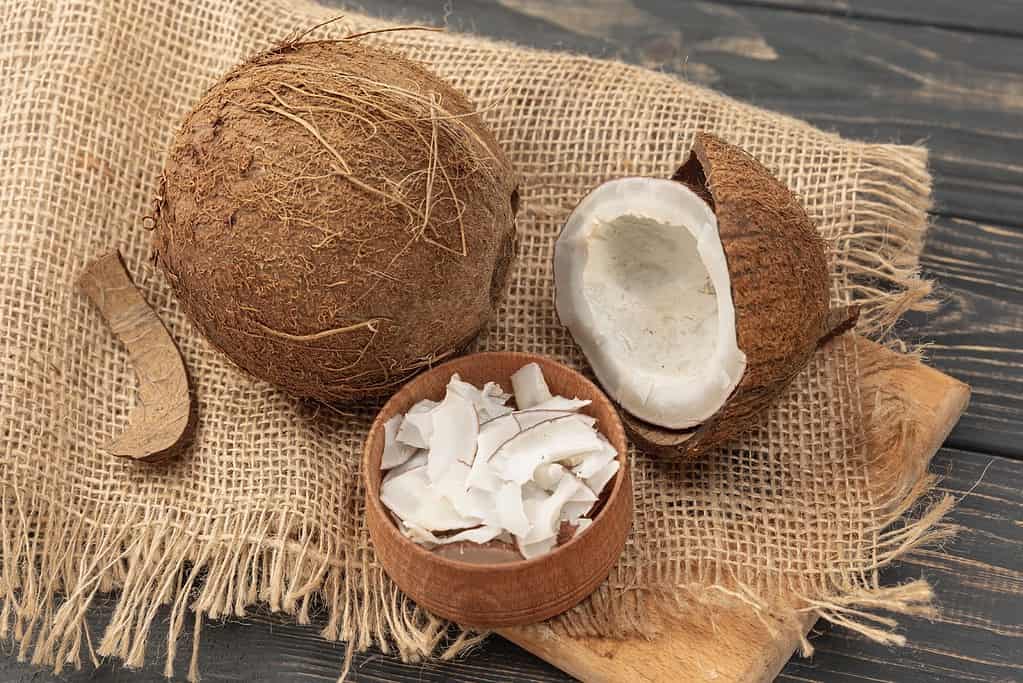
Beware, though! The coconut shell isn’t part of the equation. Keep it safe and ditch the shells. Stick to the squishy, tasty white stuff, and remember, don’t jazz it up with any sugars or additives.
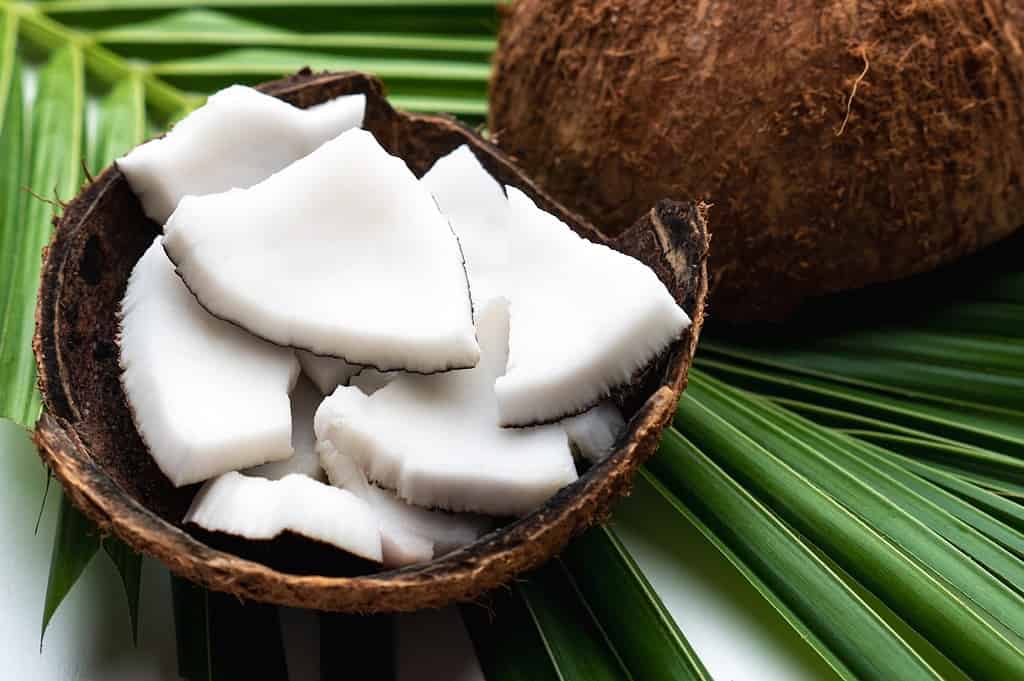
But when handled right, coconuts make a great snack, packed with vitamins, minerals, and healthy fats. Just remember to give pooch the good, creamy insides and not the hard-as-nails shell.
Benefits of Coconut for Dogs
Nutritional Benefits
Coconut meat is high in vitamins, minerals, and healthy fats, which can provide nutritional benefits for dogs.
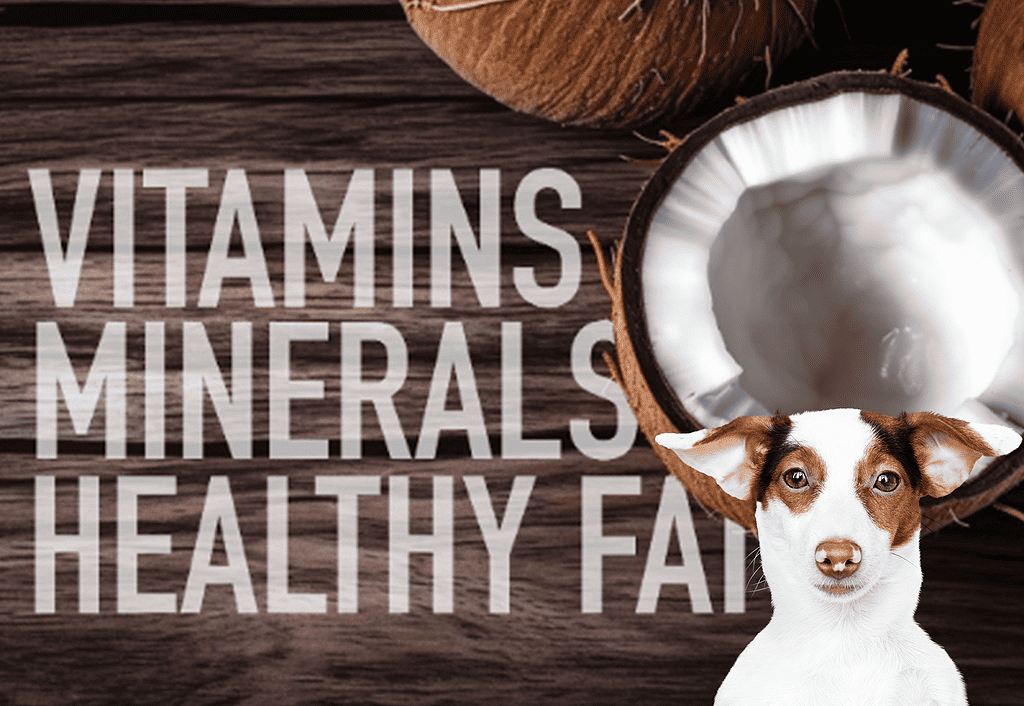
It’s chock-full of goodies like manganese, which is like fuel for their immune system and helps absorb nutrients.
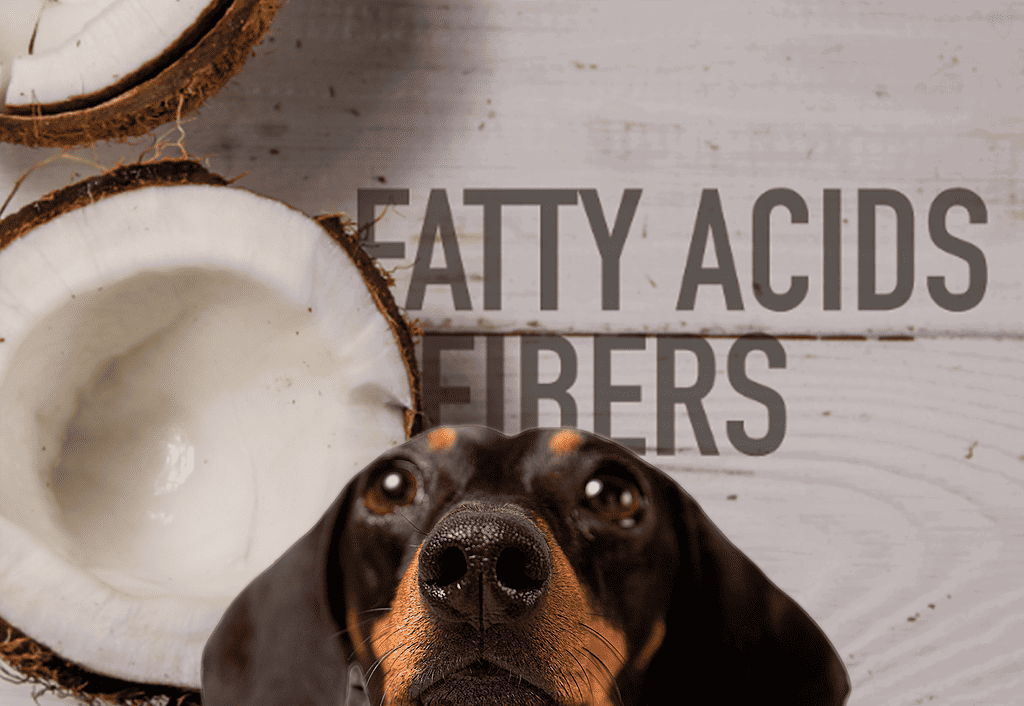
Coconuts are more than just tasty; they’re packed with lauric acid, which can help fight off viruses like canine flu. Plus, they’ve got fiber to help with digestion and keep your pup’s bathroom schedule regular. So it’s a win-win!
Benefits for Skin and Coat
Alright, so your dog’s coat is maybe not as shiny, or its skin seems dry and itchy. Don’t fret, folks! Grab some of that good coconut oil and watch the magic happen.

This natural moisturizer combats dryness and itchiness, while its anti-inflammatory properties soothe skin irritated by allergies. Slather some on your doggo’s coat and it’s not just shiny, it’s silky too!
Antioxidants and Immune Support
Hold up, there’s more magic to this fruit! Coconuts are loaded with antioxidants that battle oxidative stress and protect your dog’s cells.
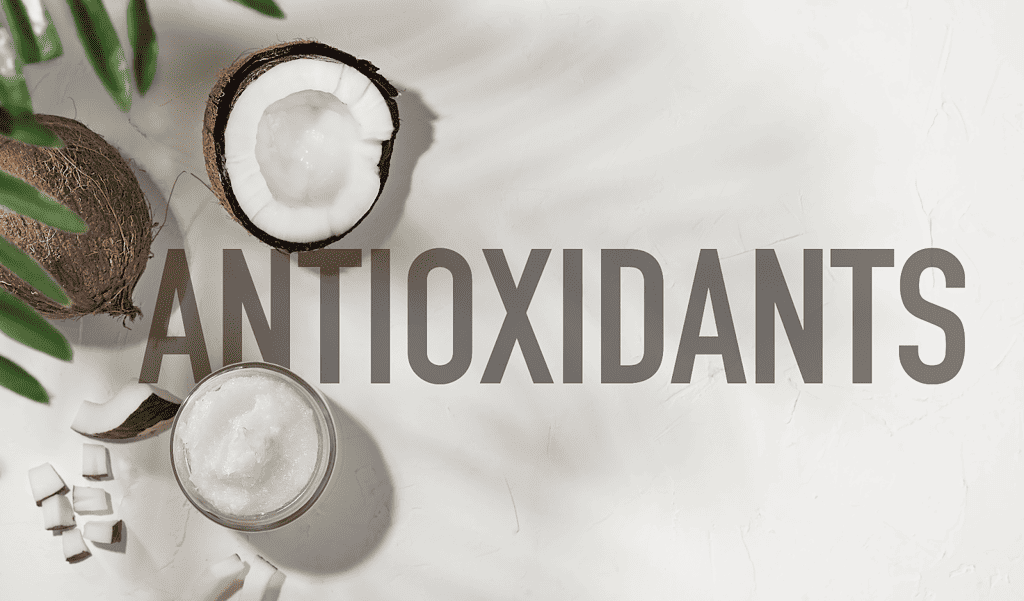
These are multitaskers with immune-boosting benefits and they add to lauric acid’s antibacterial, antiviral, and anti-fungal properties. So, it’s pretty much a doggy superfood!
So by sneaking a bit of coconut or coconut goodies into your dog’s bowl, you’re giving them a huge power boost.
Potential Side Effects of Coconut for Dogs
Coconut Water and Diarrhea
You may think that refreshing coconut water is something for you and Fido to savor on a hot day. But hold on there!

Even if it’s not toxic, this sweet tropical juice could give your dog an upset tummy, translating into messy diarrhea or gas.
Potential Pancreatitis Risk
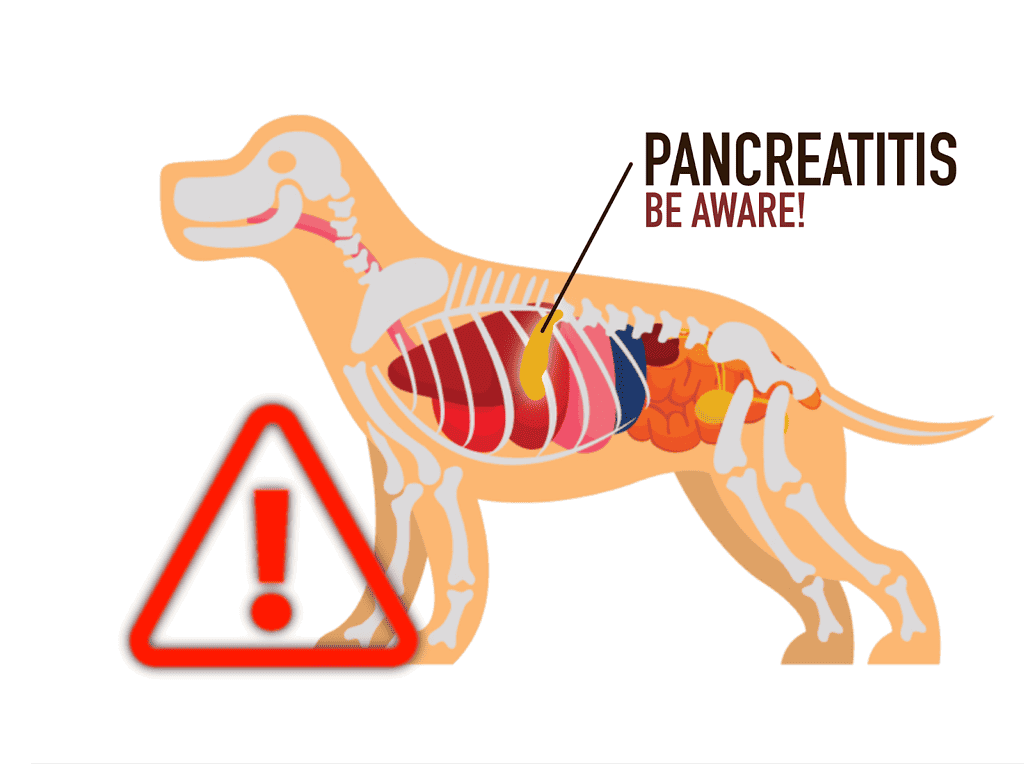
Coconuts have medium-chain triglycerides, a fat that isn’t harmful but they might upset your pup’s belly. This can be dangerous, especially if your dog has a sensitive tummy or a history of pancreatitis.
Choking and Digestion Risks from Coconut Shell
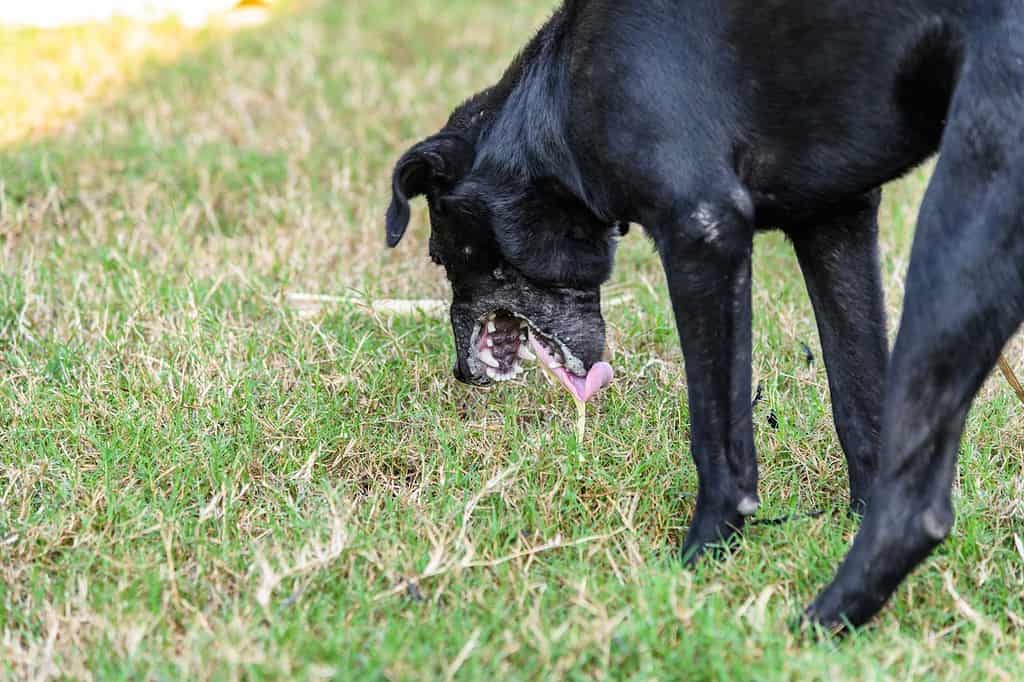
Coconut shell is about as edible as a bowling ball for your pup! They could choke on it or swallow sharp bits that can cause all kinds of nasty blockages and digestion issues. So skip the shell altogether and stick to the coconut meat.
Weight Gain from High Calories
Coconut meat and oil have definite benefits for dogs, but they pack a caloric punch. Too much can turn a healthy pup into an overweight pooch, so go easy.
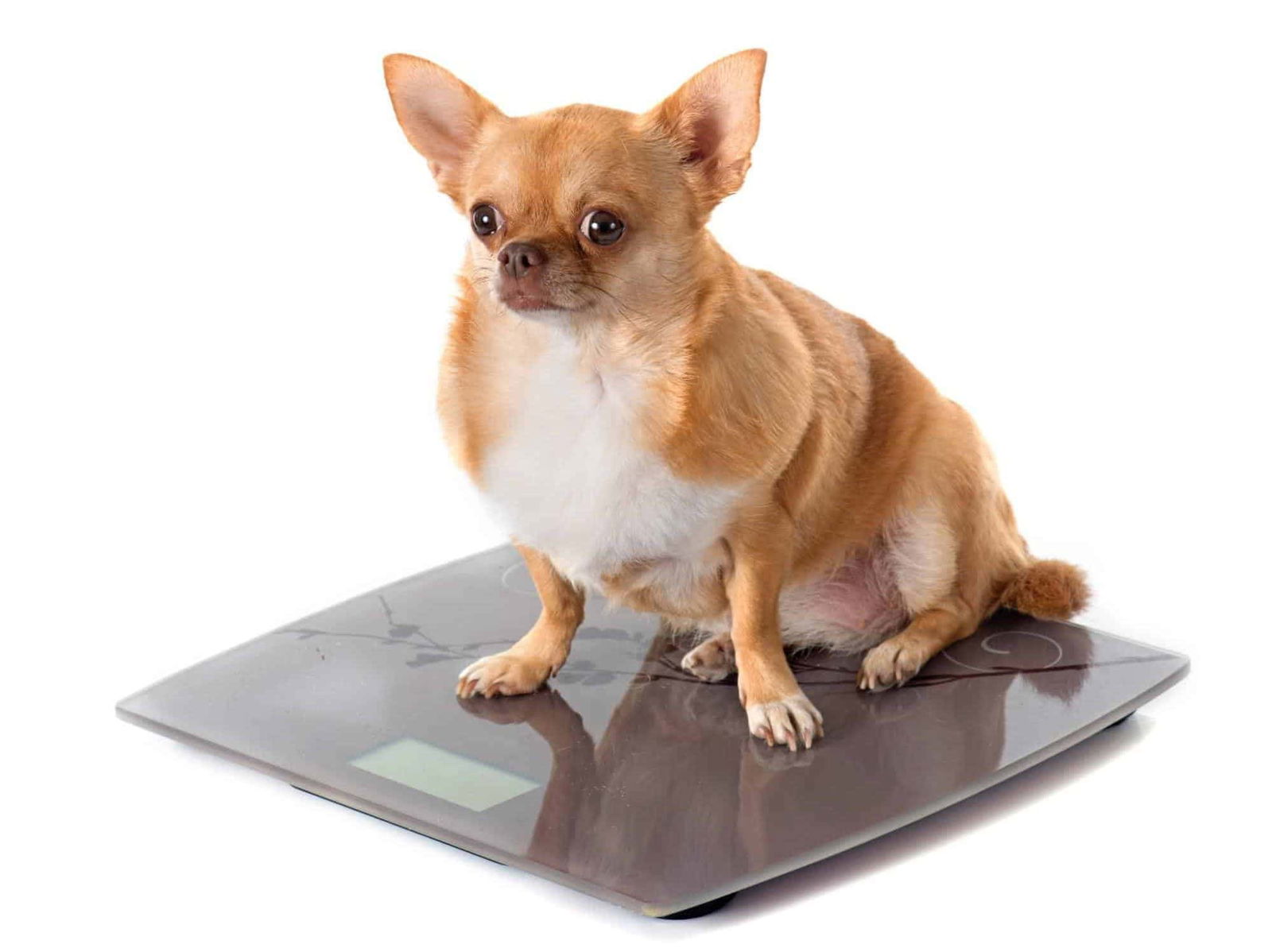
If any red flags pop up when you introduce coconut products into your pet’s diet, like adverse reactions or signs of allergy, pay a visit to the vet.
Enjoying this read?
We publish this content for free to generate interest in our Premium members' area. By subscribing, you can ask the writer any questions related to pet care and this article, get access to 100+ Premium Pet Care Guides and go Ad-Free with DogFix Premium for $2.99.
How to Safely Feed Coconut to Your Dog
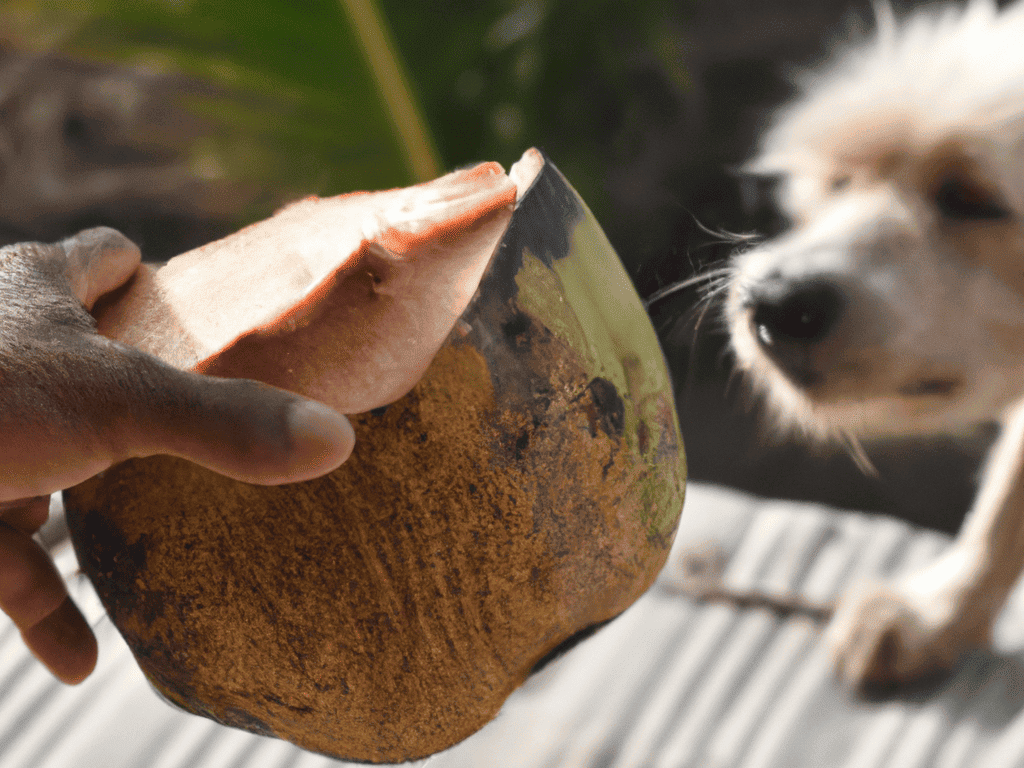
So you’re sold on all this coconut talk and want to dish some to your furry friend? Great! Just remember that, like double-chocolate chip cookies, coconut should only be an occasional food.
Portion Control
A dash of shredded coconut or a tiny spoonful of virgin coco-nutty oil (unsweetened, of course!) can give your pup a taste of island life.

Mix it into their food or try your hand at some dog-friendly recipes. Just be mindful not to go overboard or else you might have some messy problems to clean up.
No Added Sugars
When shopping for coconut products, get your detective hat on and examine those labels for added sugars or sweeteners – it might surprise you where these things hide.
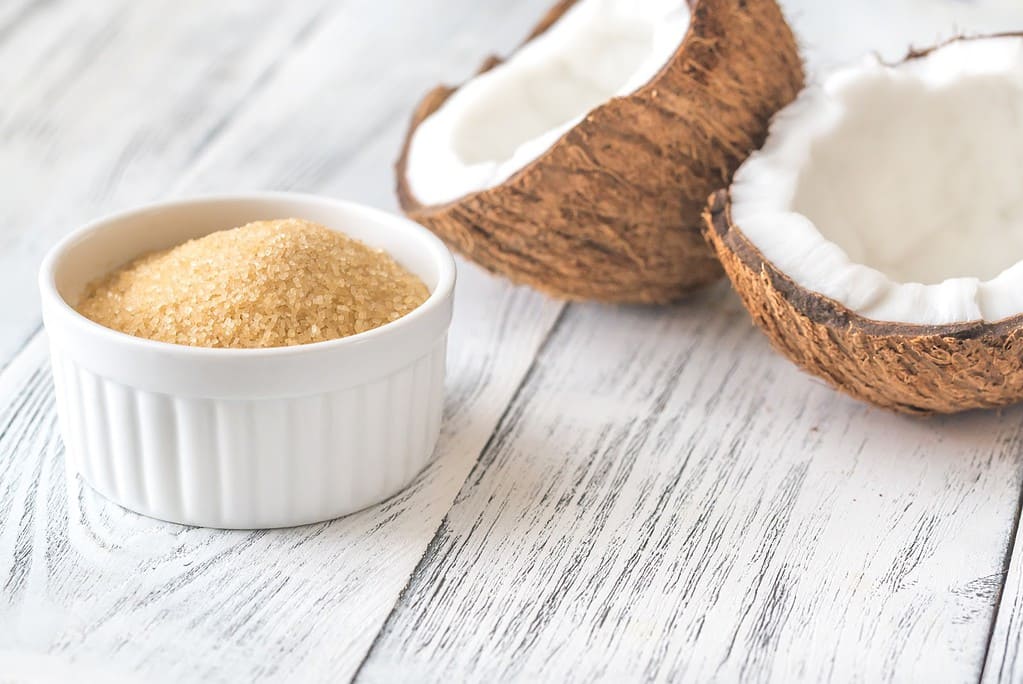
Like us, our fur buddies can get into health hiccups with too much sugar, so keep things au naturel with unsweetened and unprocessed options.
When to Reach Out to a Veterinarian
If you’re on the fence about the whole coconut thing, there’s no harm in checking with your vet. They’ll give you the lowdown tailored to your pet’s individual health, breed, or age, and will also deal with any food restrictions your pup might have.

The effects of coconuts on dogs aren’t researched as much as we would like, so keep an eye on pup after that first coconut – if they start to act differently or show signs of an upset tummy, cut the experiment short and dial up your vet.
Alternatives to Feeding Your Dog Coconut
Coconut Oil vs. Coconut Meat
You’ve probably been thinking about coconut oil and coconut meat if you’ve got a dog and have caught the coconut bug.
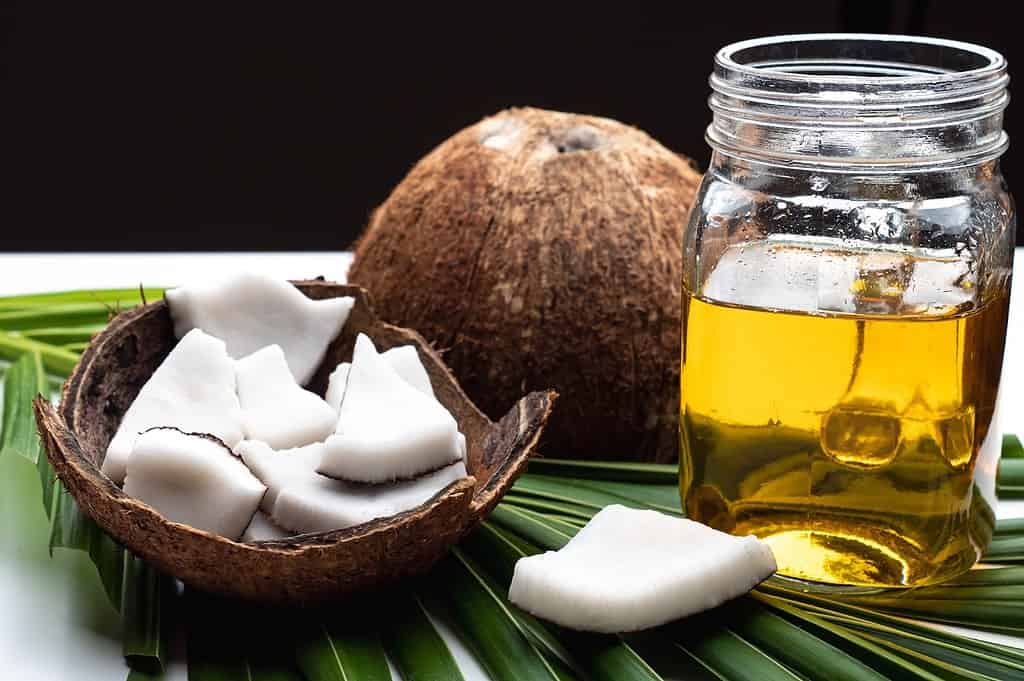
Sure, coconut oil is safe when used sparingly and can be a helpful lubricant for giving dog pills.
But sometimes too much oily stuff causes doggy diarrhea, especially for pooches prone to gastrointestinal issues or pancreatic disease.
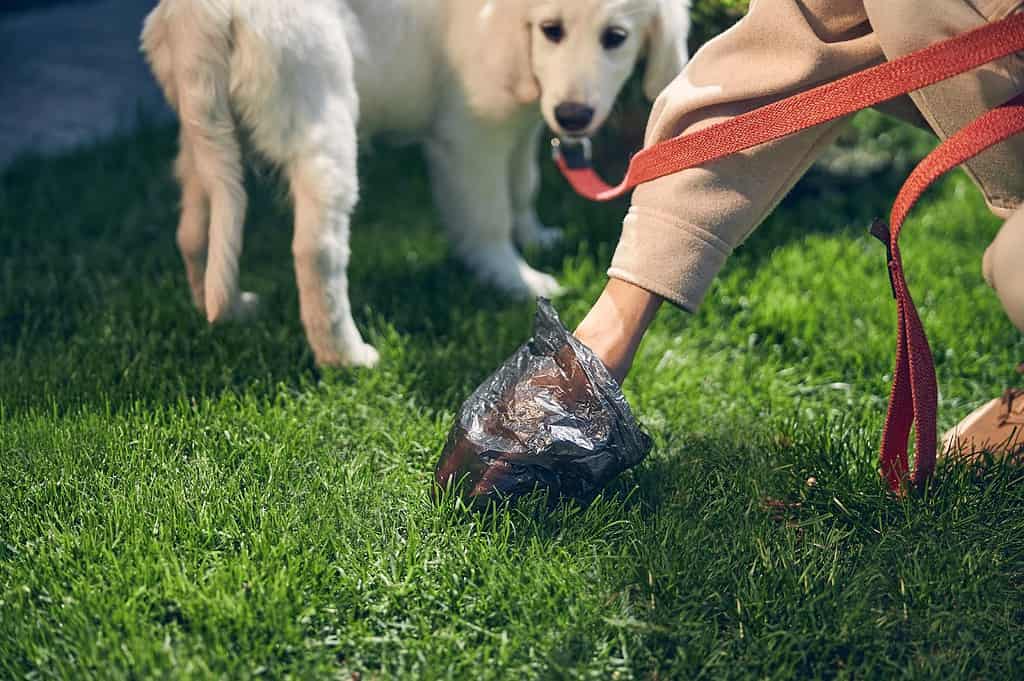
While coconut meat is often seen as just as healthy or even healthier than coconut oil, moderation is key. It’s safe and can be a nutritious part of your dog’s diet. Just steer clear of sweetened or flavored stuff that could upset your pup’s belly.
Coconut Milk
Coconut milk is another option for your furry friend, just don’t make it a habit. Sure, it has some neat nutrients, but it’s high in fats and calories.
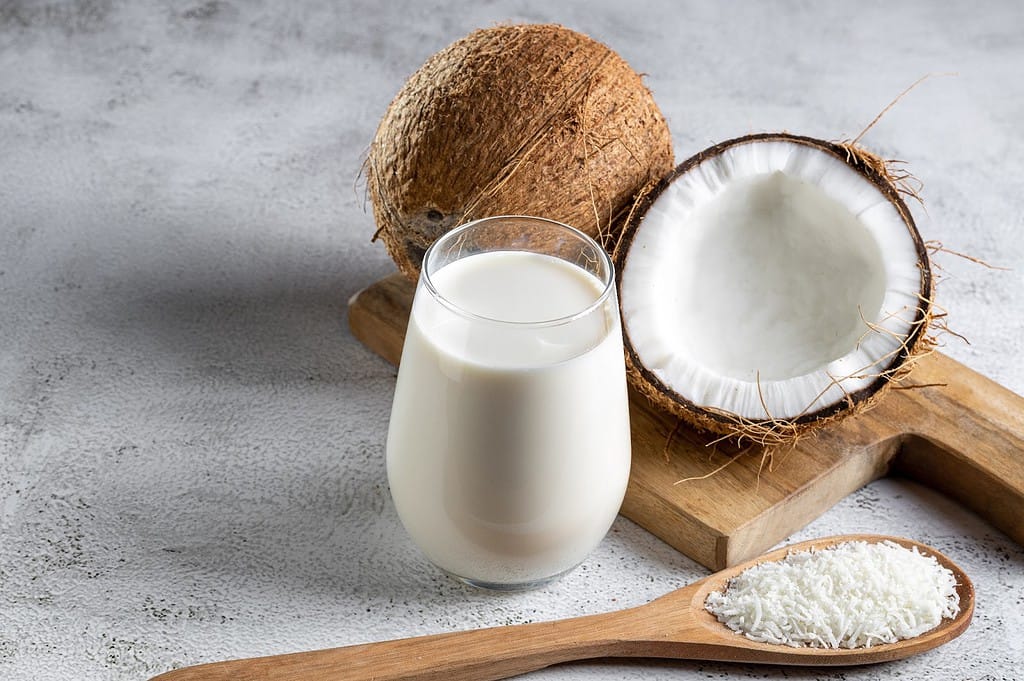
Overindulging in coconut milk could make your dog’s weight expand faster or maybe even upset their stomach. Always opt for the plain and unsweetened version when it’s treat time.
Coconut Flour
If you’ve become a covid-lockdown baker and have your dog as your taste tester, coconut flour is a fantastic alternative to wheat flour.
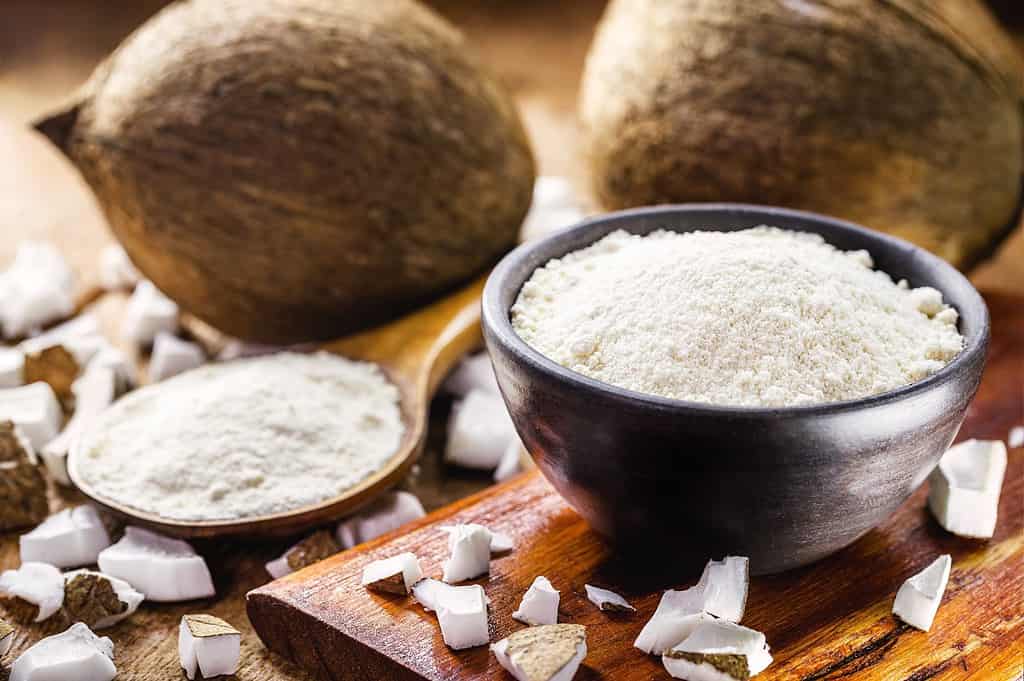
Safe and healthy, it’s a superb ingredient for making dog treats your pup won’t resist. But remember, treats are just that—treats—not an all-access pass for your pup to munch all day.
Let’s Clear Up Some Questions: Dogs & Coconut
Should I Give My Dog Coconut Oil?
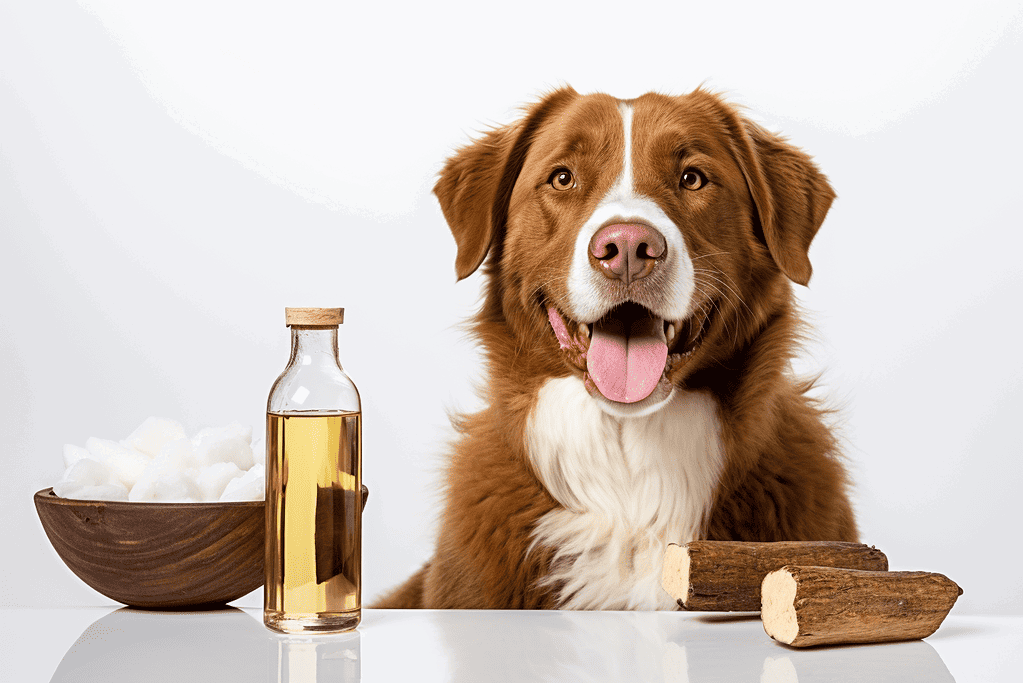
Sure, dogs can have some coconut oil. But don’t go crazy with it – a little dab will do. Remember, too much can upset their stomach and make a mess.
Can Dogs Eat Coconut Yogurt?
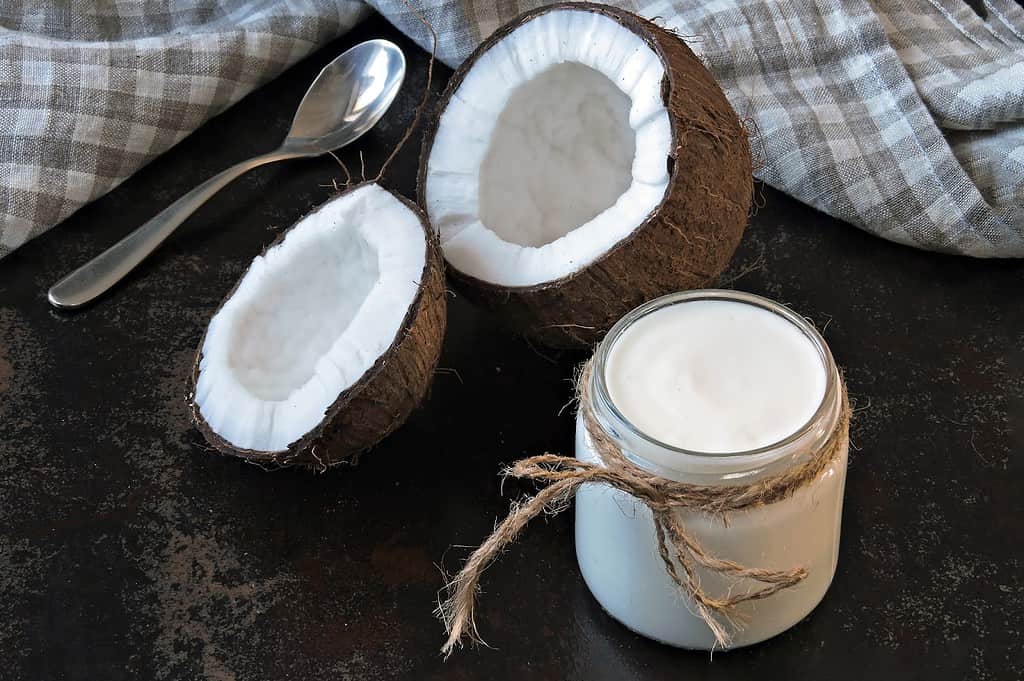
Just a little unsweetened coconut yogurt can be a nice treat for your pup. As with everything, don’t go overboard.
My Dog’s Got a Tummy Upset. Can I Still Give Them Coconut?

If your dog is dealing with diarrhea, hold off on the coconut. It can make things worse.
Are Coconut Cookies Okay for Dogs?

Coconut cookies can be a no or a yes. If they’ve got stuff like chocolate, raisins, or artificial sweeteners, that’s a no-go. But if they’re made with safe ingredients and unsweetened coconut, then your dog can enjoy these once in a while.
What About Coconut Bread?

Coconut bread can be okay as long as it doesn’t have any stuff that’s bad for dogs like raisins, chocolate, or sweeteners. Just remember, it’s a special treat, not a staple food.
Can Dogs Drink Coconut Milk?
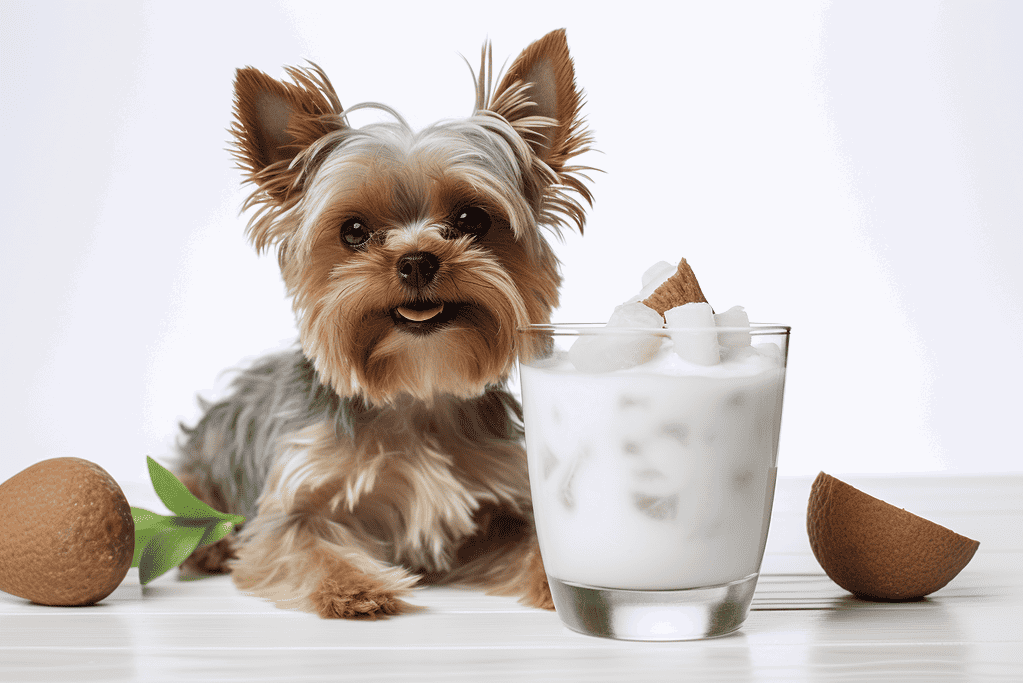
A little bit of coconut milk is typically fine for dogs. But watch out for any upset stomach signs. And remember – regular water should be your dog’s main drink.
Quick Recap
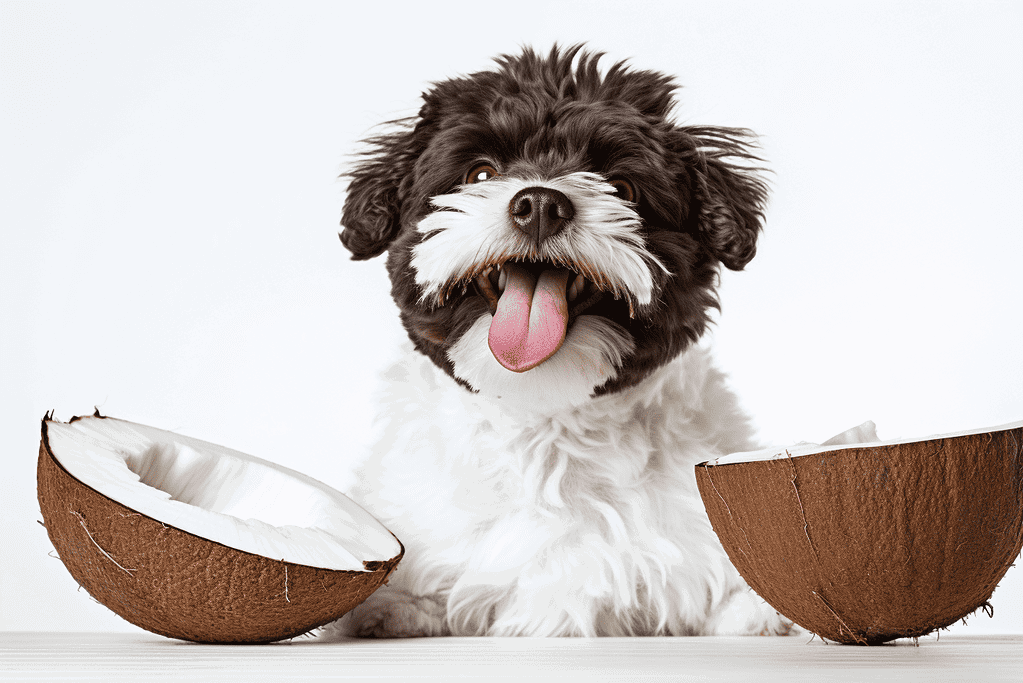
- Dogs can totally eat coconut – just keep the portions light and make sure it’s prepped right.
- Coconut comes loaded with vitamins, minerals, and those heart-friendly fats.
- Take caution to avoid side effects, such as removing coconut shells and keeping portions small.
